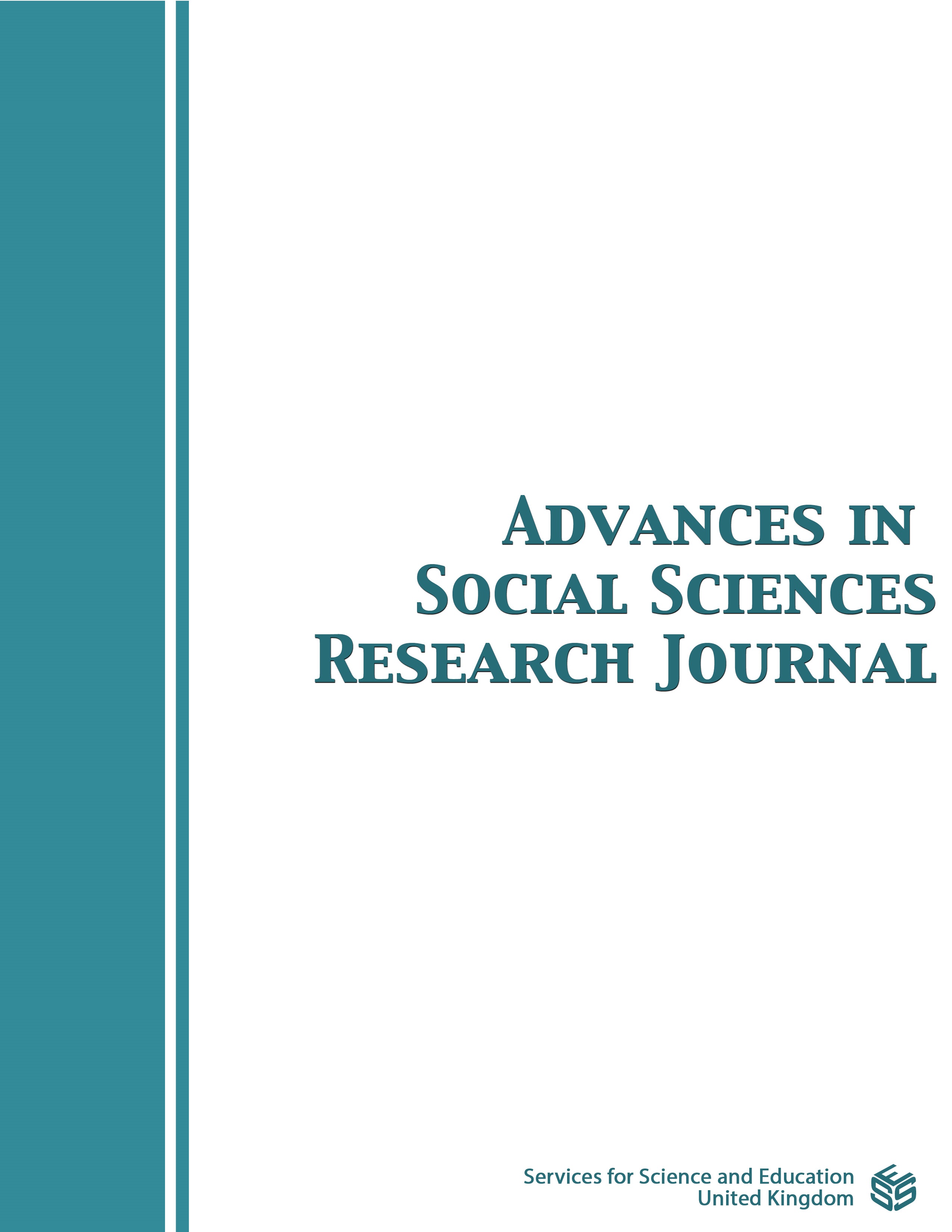The Audacious Searching of Spanish Mothers
The Appropriation of Babies During and After the Dictatorship
DOI:
https://doi.org/10.14738/assrj.93.12031Keywords:
Audacity, Stolen babies, TEB Campaigns, AppropiationAbstract
Throughout the dictatorship in Spain, many strategies were used to manipulate and silence mothers’ voices. During this period (1940-1975) and also in later times of democracy, a total of 300,000 babies were stolen (Anadir, 2011).
Currently, family organizations are looking for their children, stolen between 1940 and 1999. Their calls for memory, justice and reparation found a space for action in social media as the campaigns “We Are Looking for You” (2017, 2018), where they could their search after surviving obstetric violence and stigmatization. Transcending these deeds from a space of action, the precepts proposed by Frankl –on accepting pain, taking responsibility for what they feel in order to give meaning to the tragedy– are observed. Through this ethnographic study, carried out during the recording of two social media campaigns, we will endeavor to confirm the following hypothesis: their active participation in the campaigns, the members of SOS Stolen Babies of Catalonia are developing the virtue of audacity. This audacity is linked to Frankl’s theory of assuming suffering, asserting destiny and taking a stand before it (1987). This study used participant observation and interviews of the 20 families belonging to the Catalan organization.
References
Asociación Nacional de Afectados por Adopciones Irregulares (Anadir) http://anadir.es/
Barbolla Diz, C., Benavente Martínez, N., López Barrera, T., Martín de Almagro Gómez, C., Perlado Sotodosos, L., & Serrano de Luca, C. (2010). Investigación Etnográfica. Métodos de Investigación Educativa en Edición Especial [Ethnographic Research. Educational Research Methods in Special Edition]. https://fundacionmerced.org/bibliotecadigital/wp-content/uploads/2017/12/I_Etnografica.pdf
Barrenechea López, G. (2018). Gender in Transitional Justice Contexts: Reproductive Rights in the Spanish Case of Stolen Babies [Master Thesis Lund University]. https://lup.lub.lu.se/studentpapers/search/publication/8919469
Bosch Fiol, E., Ferrer Pérez, V., & Capilla Navarro Guzmán. (2008). La psicología de las mujeres republicanas según el Dr. Antonio Vallejo-Nájera [The psychology of Republican women according to Dr. Antonio Vallejo-Nájera]. Revista de historia de la psicología, 29(3-4). 35-40.
Bueno-Morales, M., & González-Besteiro, J. (2018). Bebés Robados en Andalucía desde 1936. Buscando la Verdad, la justicia y la reparación [Stolen babies in Andalusia since 1936. Looking for Truth, justice and reparation.] Dirección General de Memoria Democrática, Junta de Andalucía.
Escudero, C. (2017). Te Estamos Buscando, TEB campaign [Video]. YouTube. https://www.youtube.com/watch?v=MfOMKmqKgsM
Escudero, C (2018). Te Estamos Buscando, TEB campaign [Video]. YouTube. https://www.youtube.com/watch?v=G0D6Txc08hU
Escudero, C. (2020). Stolen Babies in Spain: Mediated Stories for Recovery Mothers’ Activism through Online Campaigns. International Journal of Business and Social Science, 11(3). http://dx.doi.org/10.30845/ijbss.v11n3a3
Fothresingham, A. (2011, January 2). The 30.000 lost children of the Franco years are set to be saved from oblivion. The Independent.
Frankl, V. (1977). La presencia ignorada de Dios. Psicoterapia y religion [The ignored presence of God. Psychotherapy and religión]. Herder Editorial.
Frankl, V. (2015). El hombre en busca de sentido [Man’s Search for meaning. From Death-Camp to Existentialism]. Herder Editorial.
Frankl, V. (1987). El hombre dolente. Fundamentos antropológicos de la psicoterapia [The suffering man. Anthropological foundations of psychotherapy]. Herder Editorial.
González-Duro, E. (2008). Los psiquiatras de Franco: Los rojos no estaban locos. Ediciones Península
Quiñonero, L. (2002, January 20). Un marxista es un débil mental [A Marxist is a mentally-ill person]. El Mundo. https://www.elmundo.es/cronica/2002/111/1011609459.html
Manzor-Coats, L. (1990). The Reconstructed Subject: Women’s Testimonials as Voices of Resistance. In L. G. Cunningham (Ed.), Splintering Darkness: Latin American Women and Writers in Search of Themselves. Latin American Literary Review Press.
Morcillo Gómez, A. (2015). En cuerpo y alma: ser mujer en tiempos de Franco [In body and soul: being a women in times of Franco]. Siglo XXI de España Editores.
Nash, M. (1984). Aproximación al movimiento eugénico español: el Primer Curso Eugénico Español y la aportación del Dr. Sebastian Recassens [Proximity to the Spanish eugenic movement: the First Spanish Eugenic Congress and the contribution of Dr. Sebastian Recassens]. Simbernat, Revista Catalana d’Història de la Medicina i de la Ciencia (IV).
Ortiz Heras, M. (2006). Mujer y dictadura franquista [Women and the Francoist dictatorship]. Aposta. Revista de ciencias sociales (28).
http://www.apostadigital.com/revistav3/hemeroteca/ortizheras.pdf
Vallejo-Nájera, A. (1932). Ilicitud científica de la esterilización eugénica [Scientific illiciteness of eugenic sterilization]. Acción Española I(2). 142-154. https://www.filosofia.org/hem/193/acc/e02142.htm
Vallejo-Nájera, A. (1937). Eugenesia de la Hispanidad y regeneración de la raza [Eugenics of Hispanity and Regeneration of the Race]. Editorial Española.
Valverde, E. (2012) Constructing Victimhood in Post-Franco’s Spain: The recovery of memory by the grandchildren of victims of the Civil War and dictatorship. TEMIDA. DOI: 10.2298/TEM1201077V
Vinyes Ribas, R. (2002). Irredentas. Las presas políticas en las cárceles franquistas [Unredeemed. The female political prisoners in Francoist prisons]. Temas de hoy.
Downloads
Published
How to Cite
Issue
Section
License
Copyright (c) 2022 Carolina Escudero

This work is licensed under a Creative Commons Attribution 4.0 International License.
Authors wishing to include figures, tables, or text passages that have already been published elsewhere are required to obtain permission from the copyright owner(s) for both the print and online format and to include evidence that such permission has been granted when submitting their papers. Any material received without such evidence will be assumed to originate from the authors.






